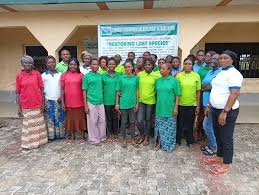
BAYELSA, Nigeria – Two leading environmental groups—the Community Environment and Development Network (CEDEN) and the Media Awareness and Justice Initiative—have joined forces to confront the escalating ecological damage caused by decades of oil exploration in Oloibiri, Bayelsa State.
The partnership was formalised during a capacity-building workshop in Otuabagi on Friday, bringing together scientists, environmental advocates and community leaders to discuss strategies for restoring degraded ecosystems and reviving lost biodiversity across the Niger Delta.
CEDEN Executive Director Menidin Egbo expressed alarm over the rapid disappearance of wetlands and forest ecologies in the region. He highlighted the urgent need to revive the raffia forest ecosystem in Ekpadio, Ogbia LGA, describing it as a critical local resource now at risk of collapse.
Egbo stressed that community-led communication is central to achieving meaningful restoration. “Communication is essential in stimulating community action and shaping governance for climate adaptation,” he said.
He called for stronger, locally driven ecological interventions—including replanting native species, managing natural regeneration and embedding nature-based solutions into community land use systems.
Otuabagi, home to Oloibiri Oil Well 1—the site of Nigeria’s first commercial crude discovery—remains one of the most environmentally impacted areas in the country. Environmental experts say this historical significance makes protection efforts even more urgent.
The NGOs argue that rebuilding Oloibiri’s environment will not only restore livelihoods but also align the community with global sustainability goals and national climate commitments.




